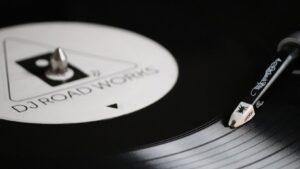Are you a musician looking to protect your creative work? Securing the copyright for your music is crucial in safeguarding your artistic efforts. In today’s digital age, understanding how to copyright your music is essential for ensuring your intellectual property rights are respected and legally protected.
In this article, we’ll delve into the process of copyrighting your music, outlining the steps involved and offering valuable insights to help you navigate the world of music copyright law with confidence.
How To Copyright Your Music

Securing copyright is crucial for musicians as it offers legal protection for their musical creations. By obtaining copyright, musicians assert their ownership over their compositions, lyrics, and recordings. This ownership gives them exclusive rights to control how their music is used, reproduced, or distributed. Copyright empowers musicians to take legal action against any unauthorized use, ensuring that they receive due credit and compensation for their work.
In the music industry, copyright law grants musicians the exclusive rights to reproduce, distribute, perform, and display their original musical works. These rights are automatically conferred upon the creation of a piece of music and do not require formal registration. However, registering music with the U.S. The Copyright Office provides additional legal benefits in case of infringement disputes. It’s essential for musicians to understand the duration of copyright protection, which typically lasts for the author’s lifetime plus 70 years.
Navigating the Registration Process

To register music and secure copyright protection, musicians can follow these essential steps:
- Create an Account: Begin by creating an account on the U.S. Copyright Office’s website to manage your registrations.
- Complete the Application: Fill out the online application with accurate details about the music you wish to register, including titles, authors, and publication information.
- Submit the Deposit: Upload a copy of the music you want to copyright, whether it’s sheet music, audio recordings, or both, as a deposit.
- Pay the Fee: Pay the required fee for registration, which can vary depending on the type of submission and whether you’re registering a single work or a collection.
- Wait for Confirmation: After submitting the application and materials, wait for the Copyright Office to process your registration. You’ll receive a registration certificate once the process is complete.
Required Documents and Information

When registering your music for copyright protection, you will need the following documents and information:
- Title Information: Provide the titles of the musical works you intend to copyright, ensuring they are accurately spelled and listed.
- Authorship Details: Include information about the authors of the music, such as composers, lyricists, and arrangers, to establish ownership.
- Publication Details: If the music has been published, specify the publication details, including the date of first publication and the publisher’s information.
- Copy of the Work: Prepare a copy of the music you want to register, whether it’s in the form of sheet music, audio recordings, or both, to serve as the deposit for your application.
- Fee Payment: Be ready to pay the requisite fee for copyright registration, which is essential to complete the process successfully.
By ensuring you have all the necessary documents and information ready, you can navigate the registration process smoothly and protect your music through copyright.
Protecting Your Music After Registration
After registering their music with the U.S. Copyright Office, musicians need to be proactive in enforcing their copyrights. This involves monitoring the use of their music to ensure that others are not using it without permission. It’s essential for musicians to take action against any unauthorized use of their copyrighted work to protect their rights.
Musicians can monitor and address copyright infringements by keeping an eye on platforms where their music is distributed or streamed. They can use digital tools and services to track and identify any unauthorized use of their music. In case of infringement, musicians should send a cease and desist letter to the party using their music without permission. If necessary, they may seek legal assistance to resolve copyright disputes and protect their intellectual property.
